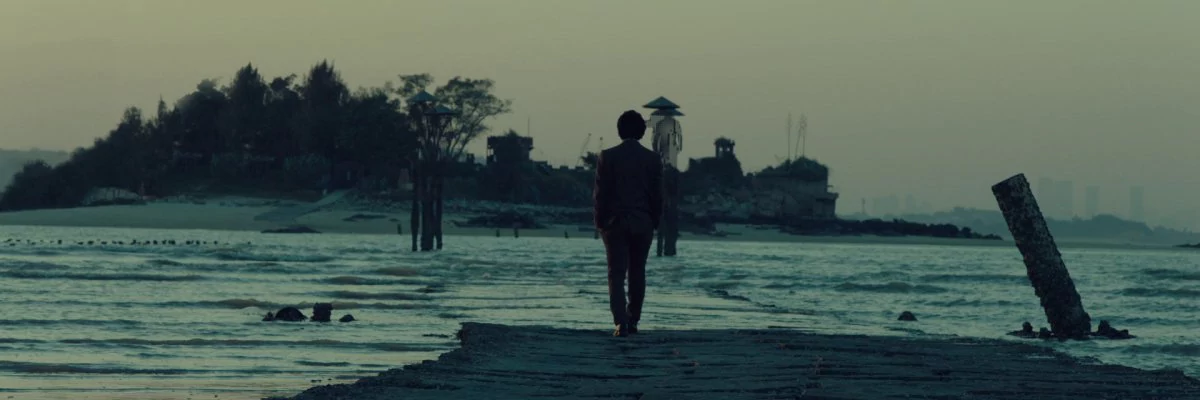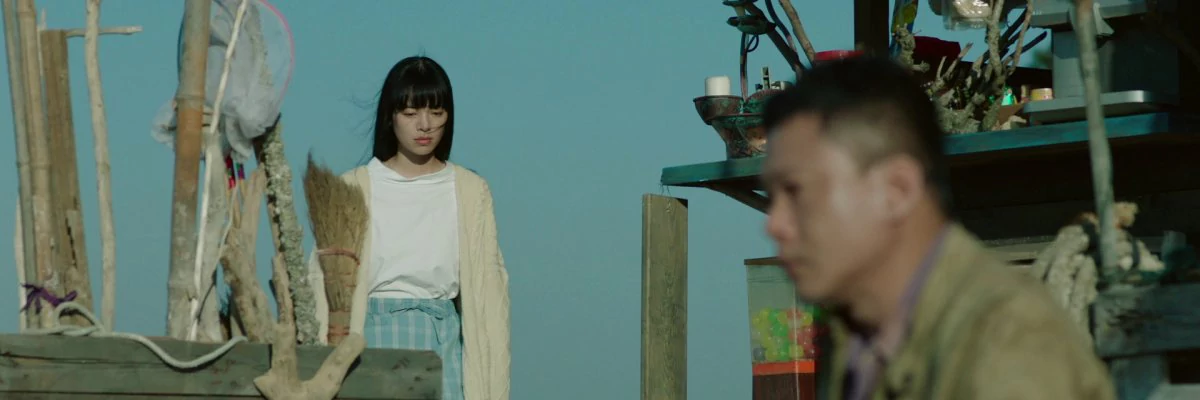Hotel Iris

Director Hiroshi Okuhara doesn't make too many films, and when he does they're usually quite hard to come by. Watching Hotel Iris, his latest feature film, it may not come as much of a surprise, as the themes and the somewhat explicit presentation can be a tad much for some, certainly in this current climate. Japanese dramas with broken characters are right in my wheelhouse though, and when they come with such an impressive cast they deserve to be watched with an open mind. I'm glad some people were at least willing to take a chance on this film because the result is well impressive.

It was only last week I complained that not enough of these types of dramas were made in Japan right now. The focus has shifted to disease-riddled romantic dramas and predictable teen/high-school woes, which can get pretty samey and aren't all that challenging. Hotel Iris harks back to the days when lead characters didn't have to be inherently nice and sympathetic. Instead, their brokenness and their attempts to get around (or sometimes right through) their setbacks are what make these films tick. It requires a bit more investment from the audience, but when done well you also get more out of it.
Another distinctive feature of Hotel Iris is the setting. It's not often that Japanese films venture outside their own borders, so it's always nice to see a Japanese director have a go at it. Taiwan isn't the most exotic location from a Japanese point of view and I'm not sure it adds anything substantial to the plot or characters (maybe that part was better explained in the original novel), but I liked the little extra spice it added, setting it apart from so many other Japanese dramas crowding the niche. If anything, the location makes for some absolutely stunning views and shots.
Mari runs an old hotel with her mother near the coast of Taiwan. She never really got over the loss of her father, so she lives a secluded life. Until this one night, when she witnesses one of the hotel's customers beating up a local prostitute. She feels strangely attracted to the man and when she runs into him the next day, she decides to follow him around. He turns out to be a translator who lives on a nearby island. It doesn't take long before the two hook up and Mari finds out firsthand about his mean streak. She isn't deterred by his behavior though and submits to his somewhat odd requests.

The cinematography is very stylized and polished, though nothing too surprising or out of the ordinary. The arthouse aesthetic is fully present, mixing more static and planned-out shots with intimate close-ups and handheld camera work. There's a bit more attention to detail here and definitely a few more landmark compositions, which is an appropriate fit for a Japanese/Taiwanese production, but it's not something I hadn't seen before. It does provide a nice contrast for the more risqué themes though, which might've come off a tad cheaper otherwise.
The score is entirely in line with the visuals. There's not a whole lot to be critical about, except that it doesn't really push any boundaries and sticks to what is expected and known to work. You get a stylish, classically inspired selection of piano/string-based tracks. It's a perfect mood setter, and the score does its part in elevating the themes of the film, but it's more a matter of craft and talent than it is of vision and creativity. Again, I won't complain too much, as the quality is obviously there, it's just that I think more could've been done with it.
For a film like this to work, you need an excellent cast, as the characters themselves aren't all that relatable or sympathetic (at least, they won't be to the majority of people). With Masatoshi Nagase tackling the male lead that part is covered. His performance is sleazy and violent in a very reserved and restrained way, making for a layered, intriguing character. Lucia holds her own next to Nagase and when the two are on screen there is clear synergy. Fans of Taiwanese cinema will appreciate an extended cameo from Kang-sheng Lee, though his contribution is pretty limited.

The misogyny on display is sure to put some people off, so if you're easily triggered by that kind of thing, it's better to just stay clear of this film altogether. The violence isn't gratuitous though and the evasive ending adds quite a bit of additional intrigue. I will admit that I didn't see it coming and wasn't quite prepared to make the intellectual investment at that point, but it is something I will be paying extra attention to when I eventually revisit the film. That said, I don't think Hotel Iris was meant to have a definitive ending with clear answers, instead, Okuhara seems more eager to force his audience to make an effort of their own.
Hotel Iris isn't genre work, but its appeal and charm are that of a good genre film: well-executed familiarity. It's not that Okuhara's signature is completely missing, it's just a bit faint and not unlike that of directors working in the same space as him. The cinematography and score are polished and stylish, the performances are top-notch and the themes are dark and challenging, resulting in a very fine drama that underlines Okuhara's talent. Distribution of the film seems problematic once again (unless you live in Germany), so getting your hands on the actual film will be a challenge, but what else is new, right?